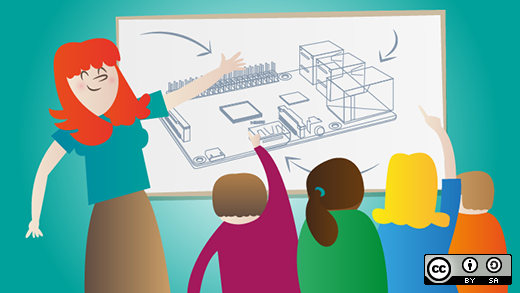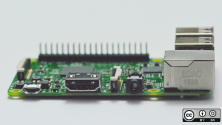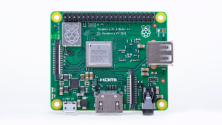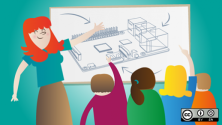When I started working at the Raspberry Pi Foundation, we set out to revamp the website and add learning materials for educators. In the mean time, we wanted to get a few resources out in time for Hour of Code week, so we wrote them on GitHub for easy sharing. It's easy to get started writing with markdown, and it made collaboration straightforward. Despite all being new to GitHub, the education team really liked the way this worked and wanted to stick with the method, so we did.
I had to come up with a way of bringing the materials into templates to look good on our website and I found Parsedown, a PHP library for parsing markdown to HTML. It allowed us to write content on GitHub and preview it in its basic form, then deploy to our web server in a specially designed template with all the links, images, and presentation intact. The layout evolved from a simple header and footer wrapped around the markdown content to a more bespoke template with custom graphics from our talented illustrator.
Creative Commons
Licensing our resources was a no-brainer. As an educational charity, we want our materials to be as free as possible (no restrictions) so we chose the Creative Commons Share-alike (CC BY-SA) so that people can access them for free, and so educators know they can use them, print them, copy them, change them, and do whatever they want with them.
There are Raspberry Pi resources and tutorials all over the internet in different formats—and the general attitude we've seen is that people want to share what they've learned. We encourage people to follow suit and use Creative Commons too.
Open collaboration
As well as members of the team collaborating on the resources, we often have GitHub issues opened by the public, which help us fix bugs or tidy up the wording in the copy. We also receive pull requests suggesting specific changes, and we can have conversations around them before merging in. Currently such feedback and contributions are limited to existing GitHub users who know that's what it's for—but we'd like to make it easier to send feedback without signing up and interacting through GitHub.
Teach, learn, and make
When planning the new resources, we thought of our ideas in three different categories: formal lesson plans for teachers, short learning activities, and more comprehensive projects. And so the resources section became Teach, Learn and Make with Raspberry Pi.
Want to see our resources for yourself? Check them out here.
column
This article is part of Ben Nuttall's Raspberry Pi column, where he shares news and stories from the world of tiny computing.







Comments are closed.